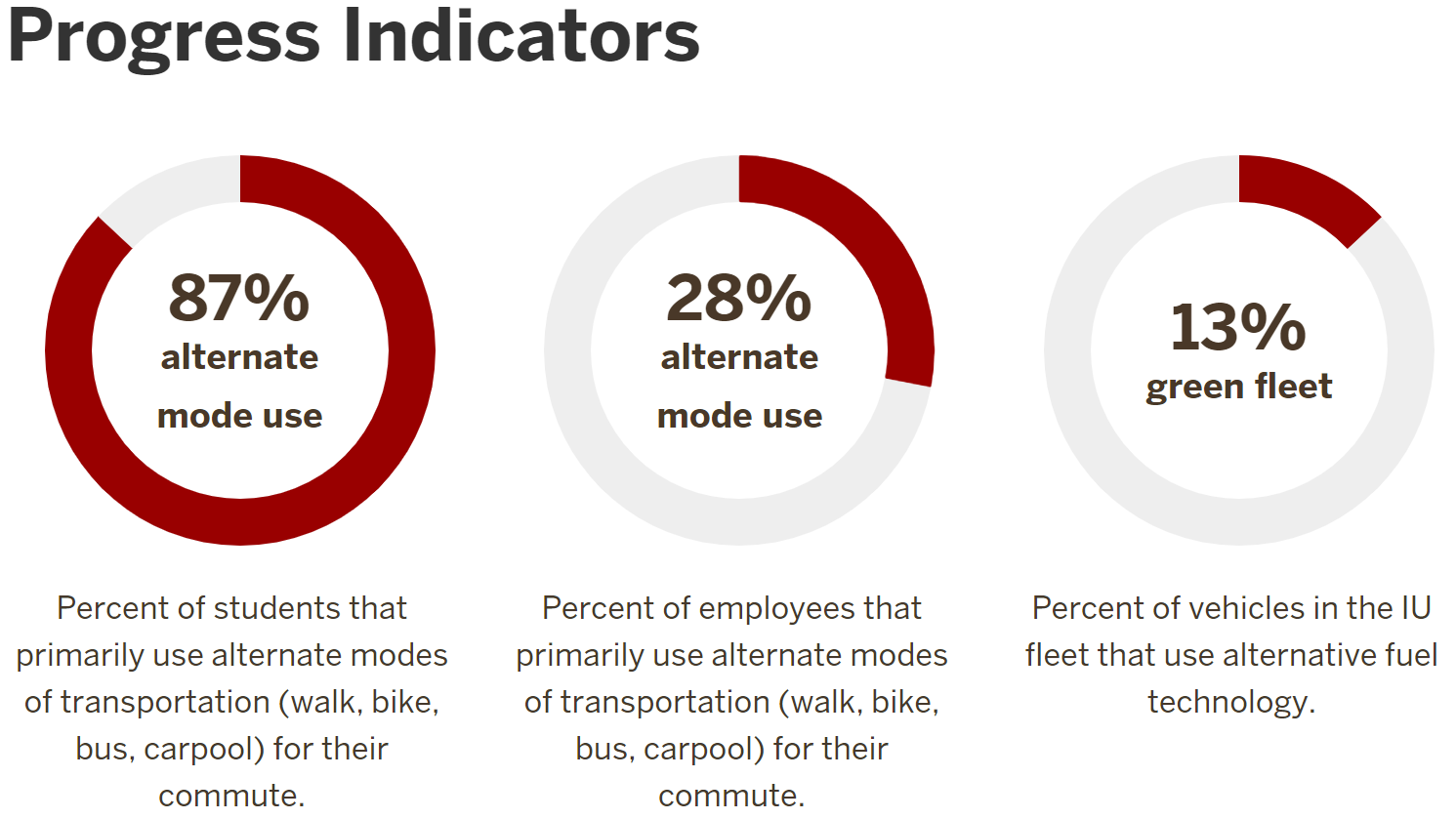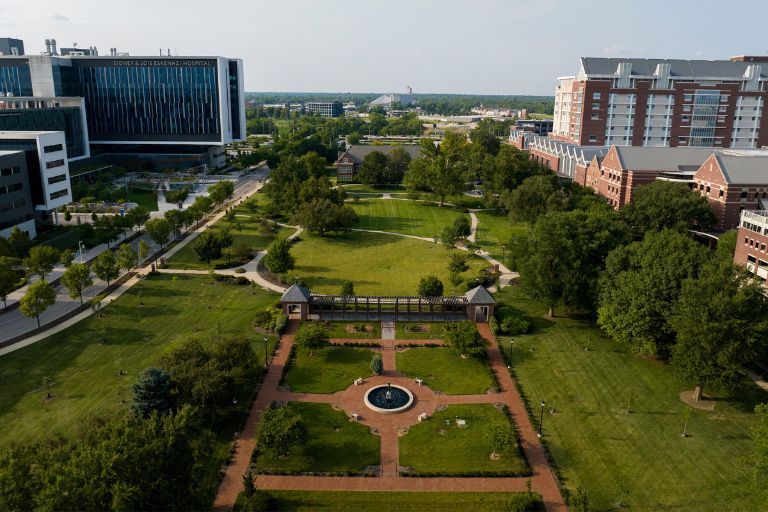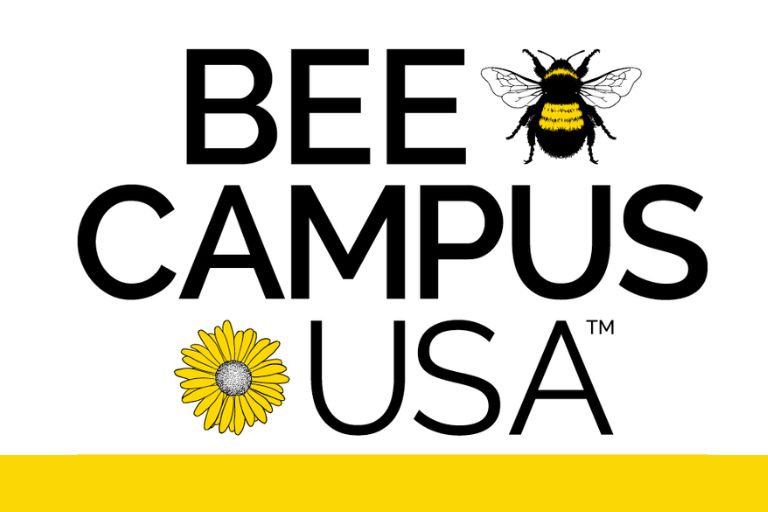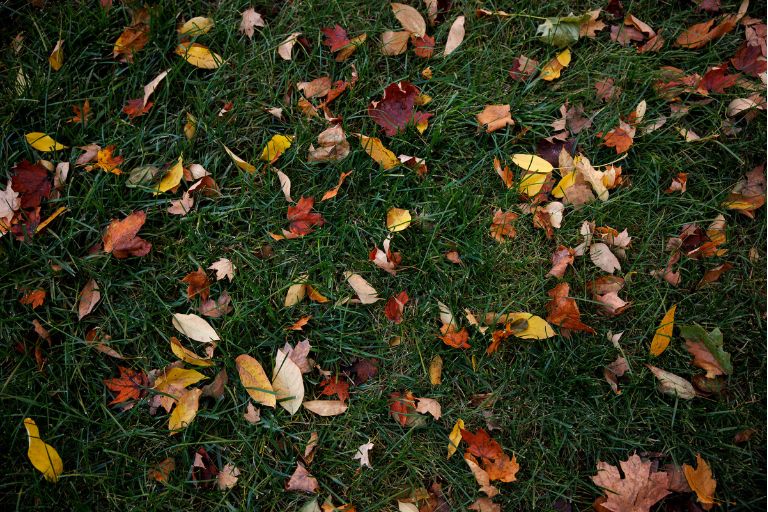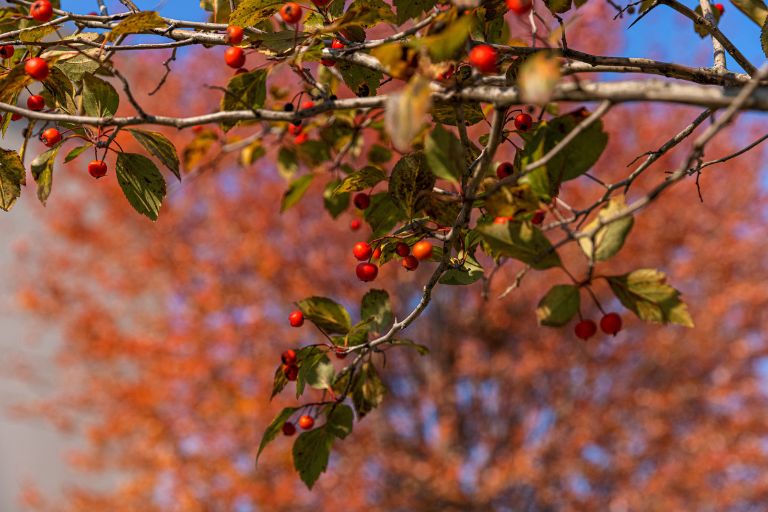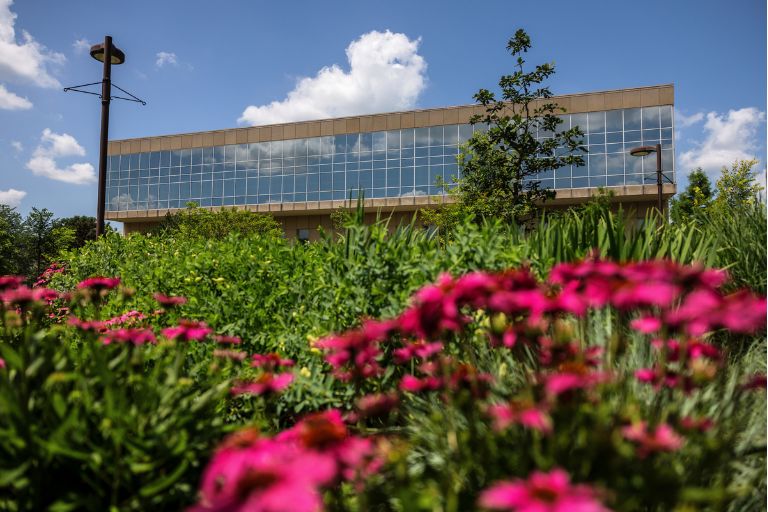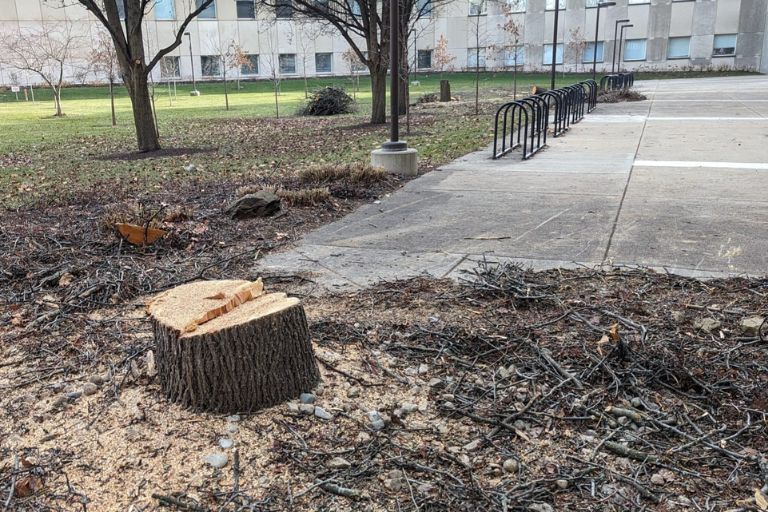The IU Indianapolis Campus Facility Services (CFS) Grounds team actively works to incorporate sustainable practices into their daily care of the campus landscape. These initiatives have increased the operational efficiency of the campus while also reducing the long-term impact of our campus footprint and providing a thriving, urban habitat for pollinators, birds, and other creatures.


